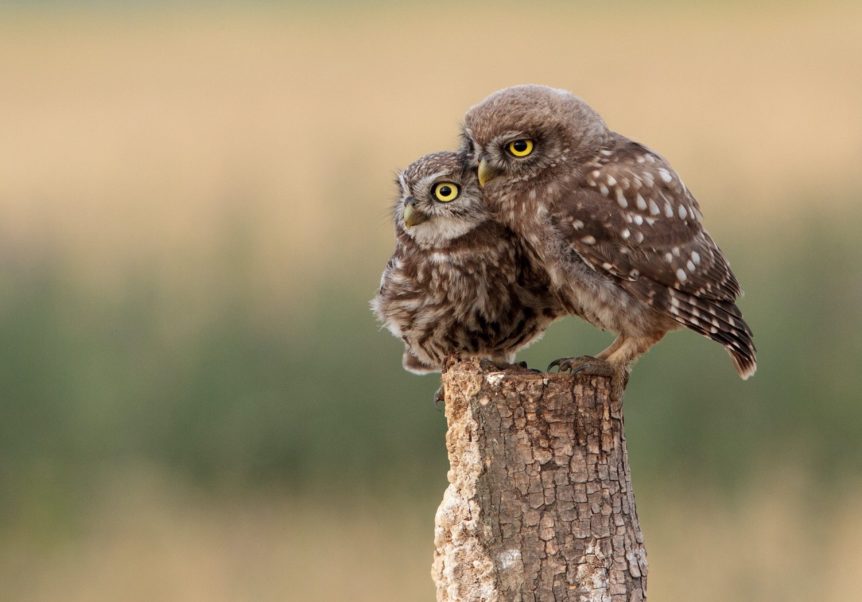For most people, the word “pet” refers to dogs, cats, turtles, rabbits, goldfish, and other animals that you can easily domesticate. You could even keep a pet parrot if you like, or a couple of chickens in your backyard.
But, for other people, those animals are a little too mainstream for their liking. They prefer to have something a little wilder, a little more exotic. Something like an owl, a hawk, or even an eagle.
As unusual as this may be, some individuals are obsessed with these types of wild birds. Capturing them isn’t an issue per se. The question becomes whether or not it is legal to keep them as pets.
If Mike Tyson had a tiger for a pet, what’s the harm in having a little cute owl perched on a tree in your backyard? Well, it’s not as straightforward as you may think. We’ve put together a legal Q&A on protected birds to answer some of the most frequently asked questions by people looking to own certain protected birds.
Is It Legal to Own an Owl?
The laws governing pet ownership vary from state to state. So, it’s always a good idea to familiarize yourself with your local laws if you’re thinking of getting an owl as a pet. In states like Alabama, Delaware, Louisiana, Minnesota, Nebraska, Nevada, and Tennessee, for instance, keeping an owl is perfectly legal.
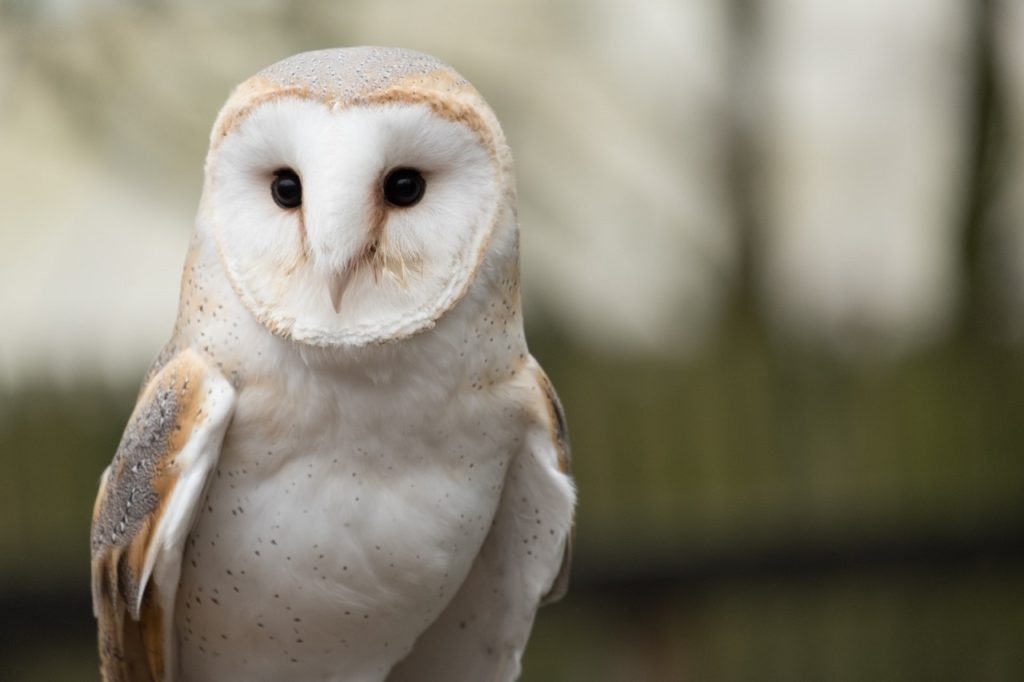
However, in other states like Alaska, California, Connecticut, Colorado, Hawaii, Iowa, Massachusetts, Oregon, and Wyoming, keeping owls is outlawed. So, if you tried to, you could potentially face some serious legal consequences.
Some states don’t have such a hard line. Provided you meet certain state requirements, you can keep an owl as a pet. In Idaho, for instance, as long as you can prove that your pet owl will not be a threat to agriculture, livestock, and the environment, you can apply for a permit to keep the bird as a pet.
States like Indiana, Maine, Michigan, and Pennsylvania require aspiring owl-owners to get a permit/license before they can keep one. In Vermont, you can only get an owl for exhibitory or educational purposes. In Texas, you can get a permit to keep one, but that depends on how dangerous the owl in question is.
So, as you can see, the rules vary widely from state to state. The best thing would be to check what your state law says about owning exotic or protected birds.
Is It Illegal to Shoot a Hawk?
Here’s the thing – hawks and owls are protected under federal law. They’re not considered Game, so can’t just shoot them. You can capture and possess them, and even then, only if you have a special permit that allows you to do so.
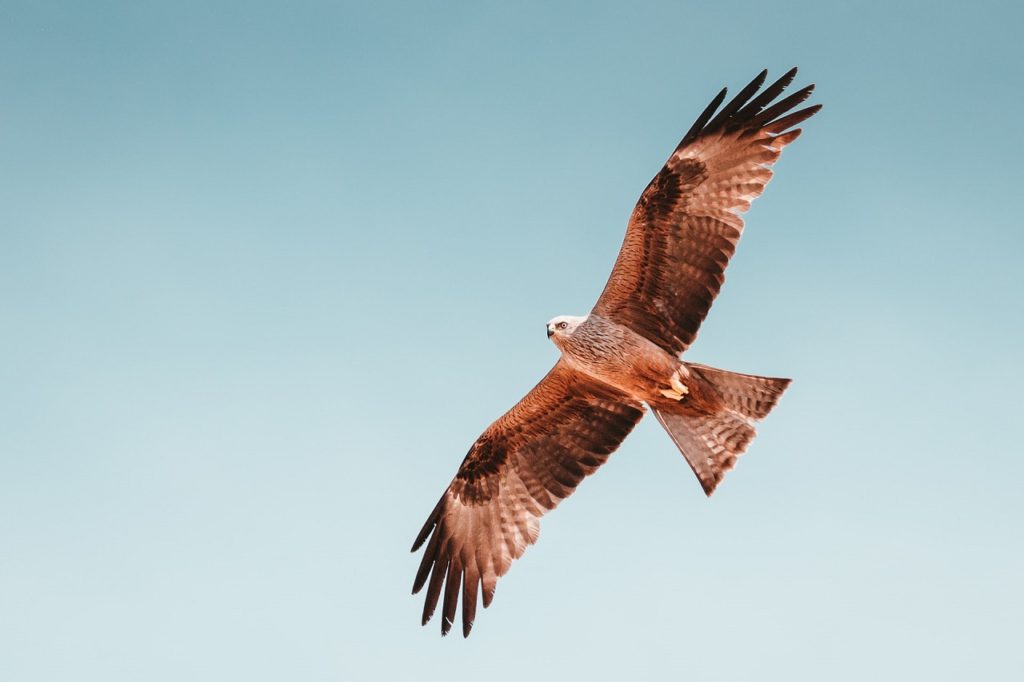
The Migratory Bird Protection Act is a federal law that bans the shooting, poisoning, hunting, trapping, caging, or killing of hawks. You can only shoot or kill it if you obtain a license from the US Fish and Wildlife Service that allows you to do so.
Even then, shooting and killing a hawk is only allowed in situations that threaten public health and safety. If you shoot a protected bird without a permit or showing due cause, you could face a heavy fine, imprisonment, or both.
Am I Allowed to Shoot a Hawk Eating My Chickens?
Hawks are categorized as raptors or “birds of prey.” They sit at the top of the food pyramid, while prey species like rabbits, snakes, squirrels, and even chicken reside in the middle. Situated at the bottom of the pyramid is the habitat.
Now, if you were to eliminate the predatory species, the prey species would overpopulate and throw the pyramid completely out of whack, which would then drastically reduce the habitat’s resources and its ability to support the rising number of animals.
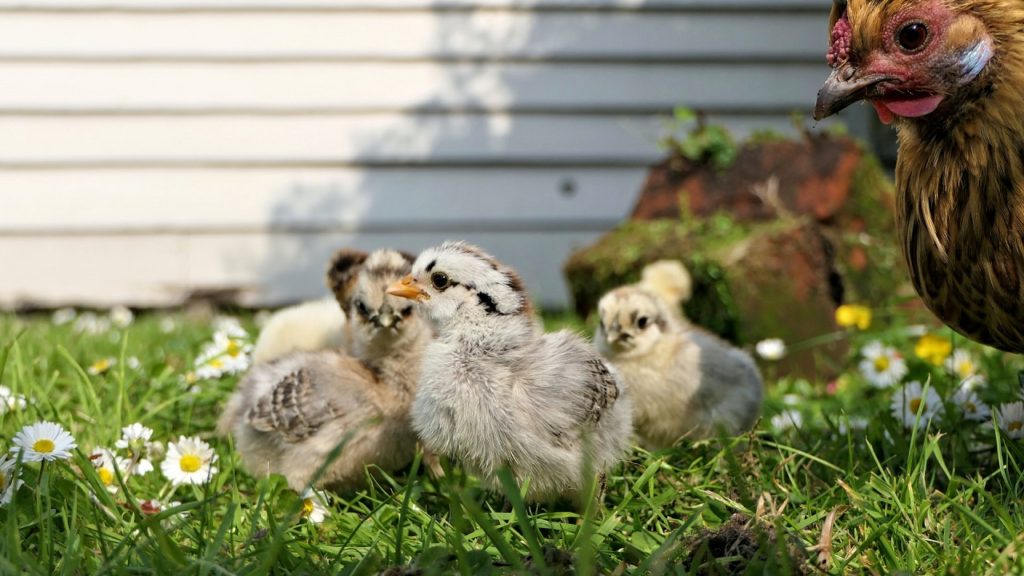
Protecting the predator populations, which include raptors like hawks, keeps everything in check. This is how nature intended it to be. That’s precisely why the 1918 Federal Migratory Bird Treaty Act exists to keep this delicate balance in check.
Now, with that short background, if a hawk is terrorizing your chickens, you still can’t shoot it without first getting a permit. The federal law still holds even in such situations.
When you get a permit, it is only intended for short term use until you find a long term non-lethal solution to keep your chickens safe from the hawks. To apply for a permit, you need to show that:
- You’re experiencing damage or loss caused by the hawks
- You’ll comply with the rules of the permit
- You’ll find a non-lethal means of dealing with the menace in the short term
A long-term solution to your hawk attack problem would be to build a poultry enclosure for your chicken.
Is It Legal to Feed Bald Eagles?
As harmless as it may seem, feeding bald eagles is illegal under both state and federal law. The reason for this, once again, all boils down to balance. If bald eagles start to congregate around a food source, they will fight over it, and, in most cases, it’s the juvenile bird population that suffers.
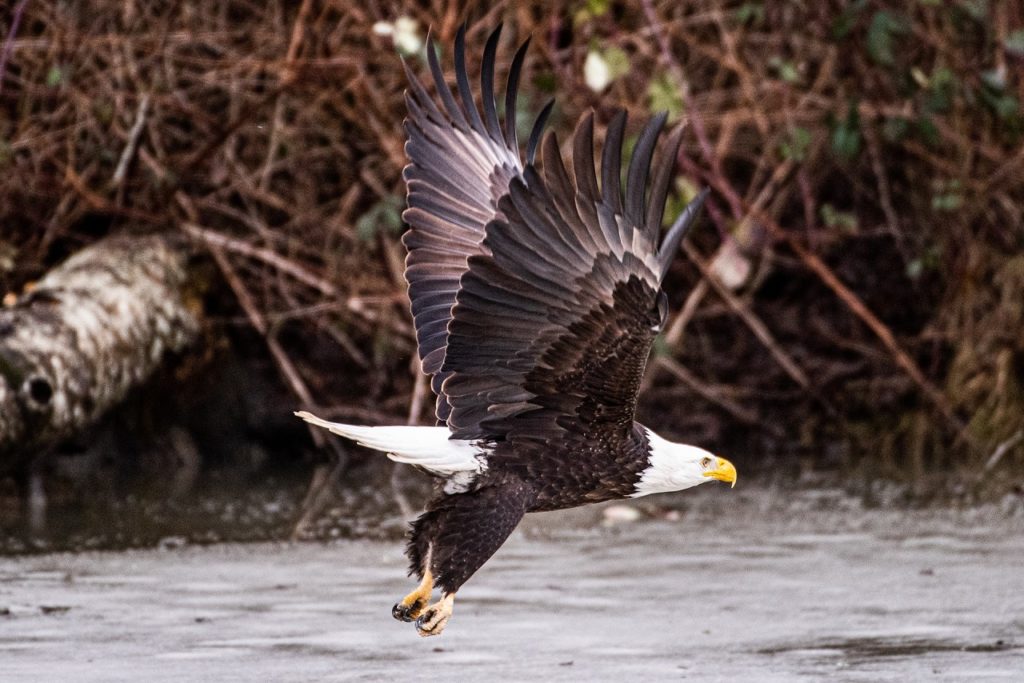
This threatens the long term survival of these predatory birds, which in turn upsets the food pyramid balance. Plus, there’s also the risk of these wild birds spreading wildlife diseases if they congregate around a specific area.
Can I Shoot Birds in My Backyard?
Federal law is quite clear on what you can and cannot do. All wild birds, apart from starlings, English sparrows, and pigeons, are protected under state and federal laws.
So, unless you have a special permit from the US Fish and Wildlife Service that allows you to shoot protected birds, it is illegal to do it. Before you shoot birds in your backyard, ensure that you can properly identify them first to avoid getting into legal trouble if you kill protected bird species.
Is Hunting Endangered Animals Legal?
The Endangered Species Act of 1973 is a federal law that provides a legal framework to protect and conserve threatened and endangered species, as well as their habitats. This protects at-risk animal populations from complete extinction.
If you hunt an endangered animal, you may have to pay a civil penalty of up to $12,000 for the offense.
Ignorance Is Not a Defense
Before you capture, hunt, shoot, or kill protected birds and/or endangered animals, familiarize yourself with the law. In most cases, it is illegal to kill protected birds unless you get a special permit that allows you to do so if the birds in question are causing some sort of loss or damage to your livestock or the environment.
However, this should only be a short term solution. You’ll need to find an effective way of creating a barrier between these birds and whatever’s attracting them to your property. As for owls, you can keep them as pets if you live in a state that allows you to. When it comes to hunting endangered animals, well, that’s just illegal, period.
If you have any legal questions on protected and endangered animals, get in touch with a Laws101.com animal law attorney.
